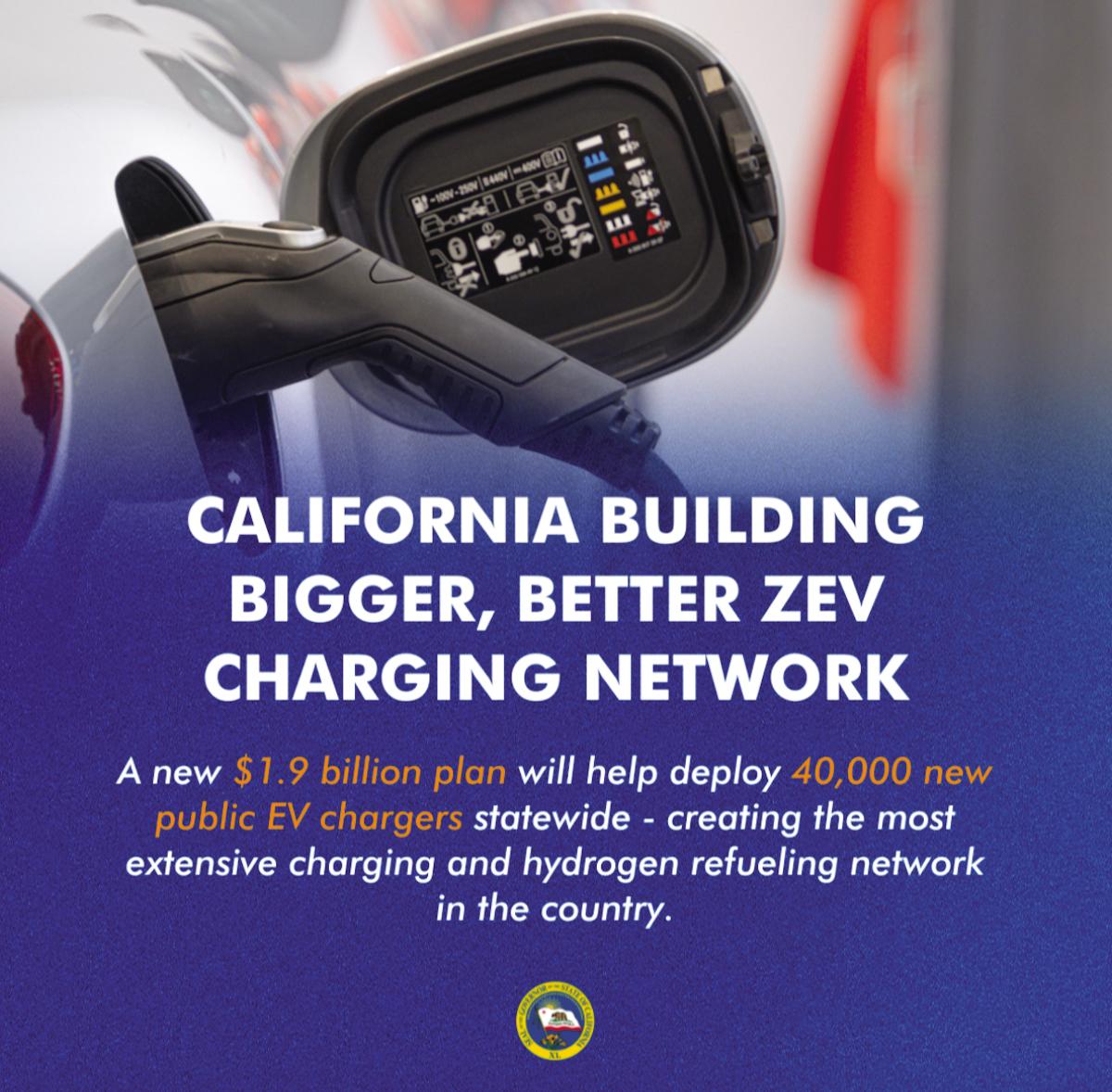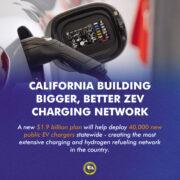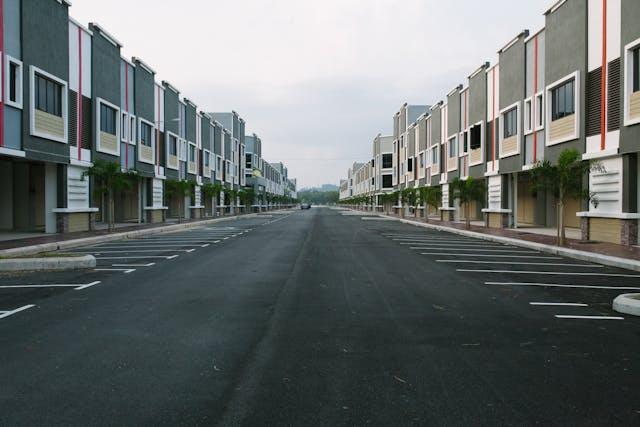
SACRAMENTO – California is making it easier to charge your electric vehicle.
The California Energy Commission (CEC) on Wednesday, February 14 approved a $1.9 billion investment plan that advances the state’s electric vehicle (EV) charging and hydrogen refueling goals.
This funding builds on $1.8 billion already invested and will help deploy 40,000 new public EV chargers statewide and other zero-emission vehicle (ZEV) infrastructure across California, creating the most extensive charging and hydrogen refueling network in the country. The investments are part of Governor Gavin Newsom’s unprecedented $10 billion budget for ZEVs, which is bolstered by billions of dollars for clean transportation from the Biden-Harris Administration.
At least 50% of the ZEV infrastructure deployed through the four-year funding plan will benefit disadvantaged or low-income communities – places often hit the hardest by air pollution.
Combined with funding from the federal government, utilities and other programs, these investments will help the state achieve its goal of deploying 250,000 public EV chargers at sites throughout California, such as highway corridors and shopping centers. This is in addition to private installations and home chargers.
“Our clean transportation future is here with more than 1 in 4 new cars sold in our state being electric. That’s why California is building a bigger and better zero-emission charging network – the most extensive in the nation,” said Gov. Newsom. “No other state in America is doing more to make our zero-emissions future a reality.”
As the state nears 2 million ZEVs sold, these investments are critical to meeting projected infrastructure needs. Last year, Governor Newsom signed a bill extending the Clean Transportation Program and providing a dedicated source of funding for EV charging through 2035.
In addition, to improve the EV charging experience, the CEC is developing first-in-the-world state regulations for EV charger reliability and reporting. A performance-based standard will apply to all new publicly funded EV chargers which, among other things, will be required to disclose operational data to help drivers make more informed choices about when and where to charge their EVs.
In 2023, 25% of new cars sold in California were zero-emission. The state surpassed both its zero-emission truck sales and vehicle sales goals two years ahead of schedule and surpassed its 10,000 fast EV chargers goal more than a year ahead of schedule. The success of the state’s programs has led to ZEVs becoming a top export and has spurred major advances in manufacturing and job creation.
(Gov. Newsom’s Press Office Release)






